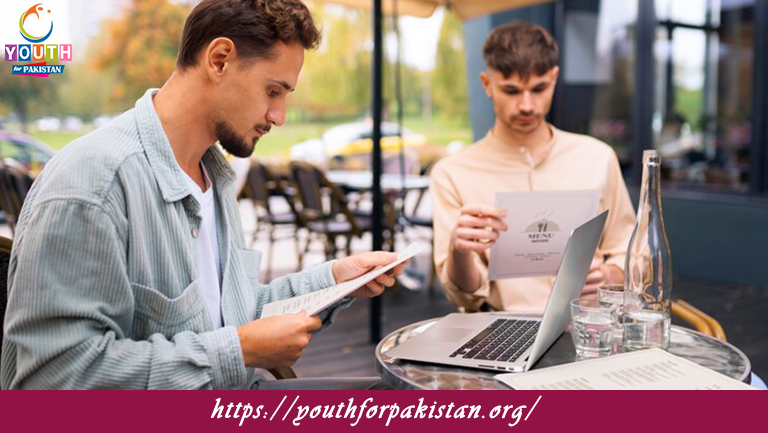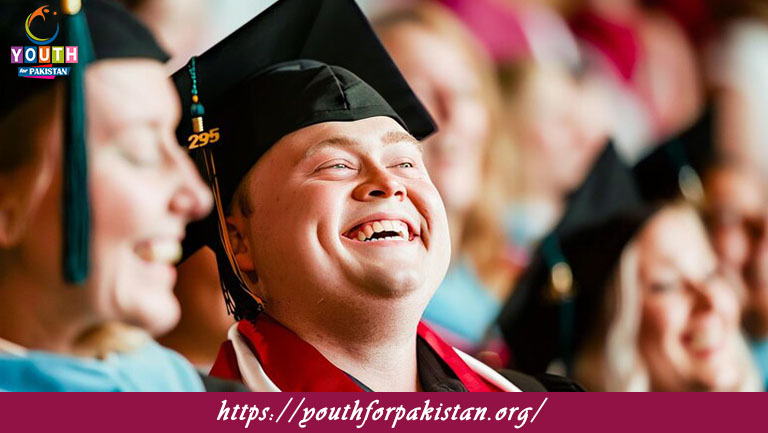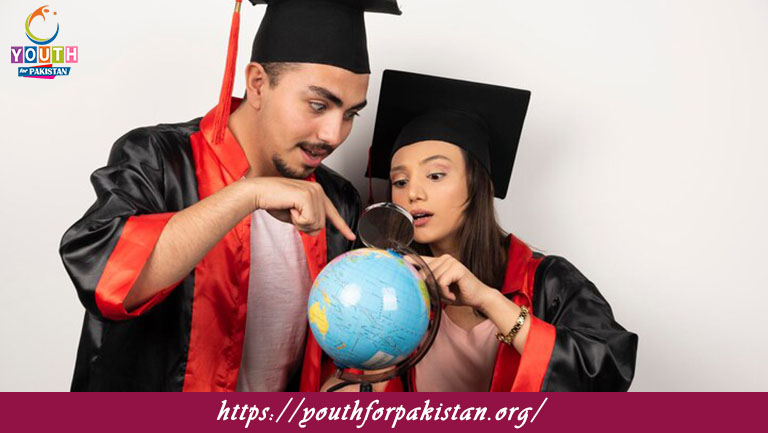Welcome to the Iskander Mirza MCQs with Answers. In this post, we are sharing Iskander Mirza Multiple Choice Questions and Answers in Pakistan General Knowledge section for various competitive exams in Pakistan. Find practice Iskander Mirza practice test with answers here. Each question offers a chance to enhance your knowledge regarding Iskander Mirza online MCQs Test.
Iskander Mirza was the first President of Pakistan from which year to which year?
a) 1956-1958
b) 1955-1956
c) 1954-1955
d) 1958-1960
Iskander Mirza served as the _____ Governor-General of Pakistan from 1955 to 1956.
a) First
b) Second
c) Third
d) Fourth
Iskander Mirza belonged to which administrative cadre of British India?
a) Indian Civil Services
b) Indian Police Services
c) Indian Administrative Services
d) Indian Foreign Services
Iskander Mirza played a key role in the promulgation of the first constitution of Pakistan in which year?
a) 1956
b) 1954
c) 1958
d) 1962
Iskander Mirza was born in which city of British India?
a) Murshidabad
b) Kolkata
c) Dhaka
d) Agra
Iskander Mirza served as the last _____ Governor-General of Pakistan before the proclamation of the first martial law in 1958.
a) Civilian
b) Military
c) Interim
d) Constitutional
Iskander Mirza was the ____ President of Pakistan.
a) First
b) Second
c) Third
d) Fourth
Iskander Mirza’s presidency was marked by political instability and eventually led to the imposition of martial law by which military general?
a) General Ayub Khan
b) General Yahya Khan
c) General Tikka Khan
d) General Agha Mohammad Yahya Khan
Iskander Mirza was known for his close association with which political party of Pakistan?
a) Pakistan Muslim League (PML)
b) All India Muslim League (AIML)
c) Awami League
d) Pakistan Peoples Party (PPP)
Iskander Mirza pursued a policy of closer ties with which country during his tenure as President of Pakistan?
a) China
b) United States
c) Soviet Union
d) United Kingdom
Iskander Mirza was deposed in a coup led by General Ayub Khan in which year?
a) 1958
b) 1956
c) 1960
d) 1954
Iskander Mirza received his early education from which prestigious institution in British India?
a) Aligarh Muslim University
b) La Martiniere Calcutta
c) Dhaka Collegiate School
d) Mayo College
Iskander Mirza served as the first President of Pakistan after the country officially became a ______ in 1956.
a) Republic
b) Monarchy
c) Dictatorship
d) Parliamentary democracy
Iskander Mirza had a brief military career in which regiment of the British Indian Army?
a) British Indian Army Medical Corps
b) British Indian Army Veterinary Corps
c) British Indian Army Signal Corps
d) British Indian Army Artillery Corps
Iskander Mirza was a vocal advocate for the modernization and industrialization of which sector in Pakistan?
a) Agricultural Sector
b) Educational Sector
c) Industrial Sector
d) Health Sector
Iskander Mirza was the author of which book, published in 1969, that outlined his views on the future of Pakistan?
a) “The Story of Pakistan”
b) “Struggle for Pakistan”
c) “My Vision for Pakistan”
d) “Pakistan: Past, Present, and Future”
Iskander Mirza’s political career started during the period of which Viceroy of British India?
a) Lord Chelmsford
b) Lord Mountbatten
c) Lord Wavell
d) Lord Irwin
Iskander Mirza was a strong proponent of which form of government for Pakistan?
a) Federalism
b) Unitary System
c) Parliamentary System
d) Presidential System
Iskander Mirza served as the first Defense Secretary of Pakistan from which year to which year?
a) 1952-1954
b) 1954-1955
c) 1950-1952
d) 1948-1950
Iskander Mirza was known for his efforts to strengthen the administrative apparatus of Pakistan through which reforms?
a) Bureaucratic Reforms
b) Educational Reforms
c) Land Reforms
d) Legal Reforms
Iskander Mirza was appointed as the first Finance Minister of Pakistan in which year?
a) 1947
b) 1948
c) 1949
d) 1950
Iskander Mirza served as the first Home Minister of Pakistan from which year to which year?
a) 1951-1952
b) 1952-1953
c) 1953-1954
d) 1954-1955
Iskander Mirza was a member of which commission that played a crucial role in the partition of British India?
a) Mountbatten Commission
b) Radcliffe Commission
c) Hunter Commission
d) Simon Commission
Iskander Mirza served as the last Governor of which province of Pakistan before the country became a republic?
a) Punjab
b) Sindh
c) Khyber Pakhtunkhwa
d) East Bengal
Iskander Mirza advocated for the promotion of which language as the national language of Pakistan during his presidency?
a) Urdu
b) English
c) Bengali
d) Punjabi
Iskander Mirza was known for his efforts to strengthen which branch of the government in Pakistan during his presidency?
a) Executive
b) Legislature
c) Judiciary
d) Bureaucracy
Iskander Mirza was the first President of Pakistan to declare a state of emergency and martial law in which year?
a) 1958
b) 1956
c) 1954
d) 1960
Iskander Mirza’s presidency saw a sharp rise in which political movement in East Pakistan, ultimately leading to the 1956 Language Movement?
a) Bengali Nationalism
b) Baloch Nationalism
c) Pashtun Nationalism
d) Sindhi Nationalism
Iskander Mirza was known for his support for which economic policy that emphasized state control and regulation?
a) Capitalism
b) Socialism
c) Laissez-faire
d) Mercantilism
Iskander Mirza was a strong advocate for the promotion of which ideology in the political landscape of Pakistan?
a) Democracy
b) Authoritarianism
c) Totalitarianism
d) Pluralism
Iskander Mirza was actively involved in which major political movement that aimed for the creation of Pakistan?
a) Khilafat Movement
b) Pakistan Movement
c) Swadeshi Movement
d) Quit India Movement
Iskander Mirza’s presidency marked a period of increasing tensions between the central government and which province of Pakistan?
a) Sindh
b) Punjab
c) Balochistan
d) East Pakistan
Iskander Mirza’s political ideology was largely influenced by the teachings and philosophy of which prominent figure of the Indian independence movement?
a) Mahatma Gandhi
b) Jawaharlal Nehru
c) Muhammad Ali Jinnah
d) Maulana Abul Kalam Azad
Iskander Mirza’s presidency witnessed significant opposition from which political party that was later banned by General Ayub Khan?
a) Pakistan Peoples Party (PPP)
b) All Pakistan Awami League (Awami League)
c) Jamiat Ulema-e-Islam (JUI)
d) National Awami Party (NAP)
Iskander Mirza was known for his efforts to promote which sector in Pakistan to improve the country’s overall economic condition?
a) Agricultural Sector
b) Industrial Sector
c) Services Sector
d) Information Technology Sector
Iskander Mirza’s presidency saw a significant expansion in which sector, aiming to modernize and strengthen the country’s infrastructure?
a) Transportation Sector
b) Energy Sector
c) Communication Sector
d) Healthcare Sector
Iskander Mirza’s presidency was marked by increasing tensions with which neighboring country, especially over border disputes and regional influence?
a) India
b) Afghanistan
c) Iran
d) China
Iskander Mirza’s political career started during the period of which British Viceroy in India, under whom he held various administrative positions?
a) Lord Mountbatten
b) Lord Irwin
c) Lord Linlithgow
d) Lord Wavell
Iskander Mirza’s presidency saw an escalation in which issue that contributed to the growing discontent among the public and the military?
a) Economic Crisis
b) Educational Reform
c) Land Redistribution
d) Political Corruption
Iskander Mirza’s tenure as President of Pakistan saw an increase in which type of political unrest and demonstrations across the country?
a) Student Protests
b) Labor Strikes
c) Civil Unrest
d) Religious Movements
Iskander Mirza’s presidency was marked by a decline in which key area, leading to a loss of public trust and support for his administration?
a) Economy
b) Education
c) Foreign Policy
d) Social Welfare
Iskander Mirza was known for his efforts to strengthen which international alliances to enhance Pakistan’s global standing during the Cold War era?
a) NATO
b) SEATO
c) Warsaw Pact
d) Non-Aligned Movement
Iskander Mirza’s presidency witnessed the rise of which key political figure who eventually deposed him in a military coup?
a) Zulfikar Ali Bhutto
b) Ayub Khan
c) Yahya Khan
d) Liaquat Ali Khan
Iskander Mirza’s political career saw him holding various administrative positions in which region of British India before the partition?
a) Bengal
b) Punjab
c) Sindh
d) Balochistan
Iskander Mirza was a vocal proponent of which policy that aimed to foster closer ties and cooperation among Muslim-majority nations?
a) Muslim Brotherhood Policy
b) Islamic Unity Policy
c) Muslim League Policy
d) OIC Policy
What was Iskander Mirza’s profession before he entered politics?
a) Military Officer
b) Lawyer
c) Educator
d) Journalist
In which year was Iskander Mirza sworn in as the first President of Pakistan?
a) 1956
b) 1955
c) 1958
d) 1954
Iskander Mirza was born in which city of British India?
a) Murshidabad
b) Kolkata
c) Dhaka
d) Lucknow
Which government post did Iskander Mirza hold before becoming President of Pakistan?
a) Minister of Defense
b) Minister of Finance
c) Governor of East Bengal
d) Chief Justice
Iskander Mirza was a part of which political party in Pakistan?
a) Muslim League
b) Pakistan People’s Party
c) Awami League
d) All India Muslim League
Iskander Mirza served as the last Governor-General of Pakistan from which year to which year?
a) 1955-1956
b) 1956-1958
c) 1958-1960
d) 1960-1962
During his presidency, Iskander Mirza attempted to establish a political system based on which principle?
a) Communism
b) Socialism
c) Democracy
d) Authoritarianism
Iskander Mirza was forced to resign from the presidency as a result of which event?
a) A military coup
b) A popular uprising
c) Foreign intervention
d) Health issues
Who succeeded Iskander Mirza as the President of Pakistan?
a) Ayub Khan
b) Yahya Khan
c) Zulfikar Ali Bhutto
d) Liaquat Ali Khan
Iskander Mirza’s presidency marked a period of significant political instability and the rise of which entity in Pakistan?
a) Military influence
b) Civil society organizations
c) Labor unions
d) Religious institutions
Iskander Mirza pursued policies that aimed to strengthen which aspect of the Pakistani government?
a) Civilian institutions
b) Judiciary
c) Legislative branch
d) Military
Iskander Mirza was born in which year?
a) 1899
b) 1901
c) 1903
d) 1905
Iskander Mirza served as the first Defense Secretary of Pakistan from which year to which year?
a) 1947-1951
b) 1951-1954
c) 1954-1955
d) 1955-1956
Iskander Mirza belonged to which ethnicity?
a) Bengali
b) Punjabi
c) Pashtun
d) Urdu-speaking
Iskander Mirza played a significant role in the establishment of which military institution in Pakistan?
a) Pakistan Army
b) Pakistan Air Force
c) Pakistan Navy
d) Strategic Plans Division
Iskander Mirza was known for his strong advocacy of which political ideology in Pakistan?
a) Federalism
b) Centralism
c) Secularism
d) Islamic fundamentalism
During his presidency, Iskander Mirza attempted to suppress the influence of which political party in Pakistan?
a) Awami League
b) Pakistan People’s Party
c) Jamaat-e-Islami
d) All India Muslim League
Iskander Mirza was known for his close association with which prominent political figure in British India?
a) Mahatma Gandhi
b) Jawaharlal Nehru
c) Muhammad Ali Jinnah
d) Maulana Abul Kalam Azad
Iskander Mirza pursued a policy of closer alignment with which international power during his presidency?
a) United States
b) Soviet Union
c) China
d) United Kingdom
Iskander Mirza was the first Pakistani head of state to be deposed by which institution?
a) Supreme Court
b) Parliament
c) Military
d) Civilian opposition
Iskander Mirza’s presidency was characterized by a significant increase in which type of political unrest in Pakistan?
a) Ethnic conflicts
b) Sectarian violence
c) Labor strikes
d) Anti-government protests
Iskander Mirza was known for his efforts to modernize which sector of Pakistan’s economy?
a) Agriculture
b) Manufacturing
c) Services
d) Information technology
Iskander Mirza was the first president of Pakistan to be born in which territory that is now part of Bangladesh?
a) Chittagong
b) Sylhet
c) Rajshahi
d) Khulna
Iskander Mirza served as the Governor-General of Pakistan from which year to which year?
a) 1955-1956
b) 1956-1958
c) 1958-1960
d) 1960-1962
Iskander Mirza was instrumental in the establishment of which educational institution in Pakistan?
a) Karachi University
b) Quaid-e-Azam University
c) Dhaka University
d) Punjab University
Iskander Mirza’s presidency was marked by increased tensions with which neighboring country of Pakistan?
a) India
b) Afghanistan
c) Iran
d) China
Iskander Mirza’s vision for Pakistan was primarily focused on the development of which sector of the economy?
a) Energy
b) Infrastructure
c) Education
d) Health
Iskander Mirza’s presidency saw the formulation of which significant policy initiative in Pakistan?
a) Industrialization Policy
b) Education Policy
c) Foreign Policy
d) Land Reforms Policy
Iskander Mirza was a strong advocate for the strengthening of which regional organization during his presidency?
a) South Asian Association for Regional Cooperation (SAARC)
b) Southeast Asia Treaty Organization (SEATO)
c) Gulf Cooperation Council (GCC)
d) Central Treaty Organization (CENTO)
Iskander Mirza’s presidency saw a significant increase in which type of political suppression in Pakistan?
a) Censorship
b) Mass arrests
c) Torture
d) Disappearances
Iskander Mirza was known for his efforts to improve which aspect of Pakistan’s international relations during his tenure?
a) Economic diplomacy
b) Cultural diplomacy
c) Military diplomacy
d) Religious diplomacy
Iskander Mirza’s presidency was marked by a notable deterioration in which aspect of Pakistan’s social fabric?
a) Gender equality
b) Religious tolerance
c) Ethnic harmony
d) Class disparities
Iskander Mirza’s policies aimed at reducing which socio-economic disparity in Pakistan?
a) Rural-urban divide
b) Gender disparity
c) Educational disparity
d) Income inequality
Iskander Mirza’s presidency oversaw the implementation of which significant economic reform in Pakistan?
a) Nationalization of industries
b) Privatization of industries
c) Agricultural land reforms
d) Import substitution policies
Iskander Mirza’s approach to governance in Pakistan was often criticized for its lack of which element?
a) Transparency
b) Accountability
c) Participation
d) Efficiency









